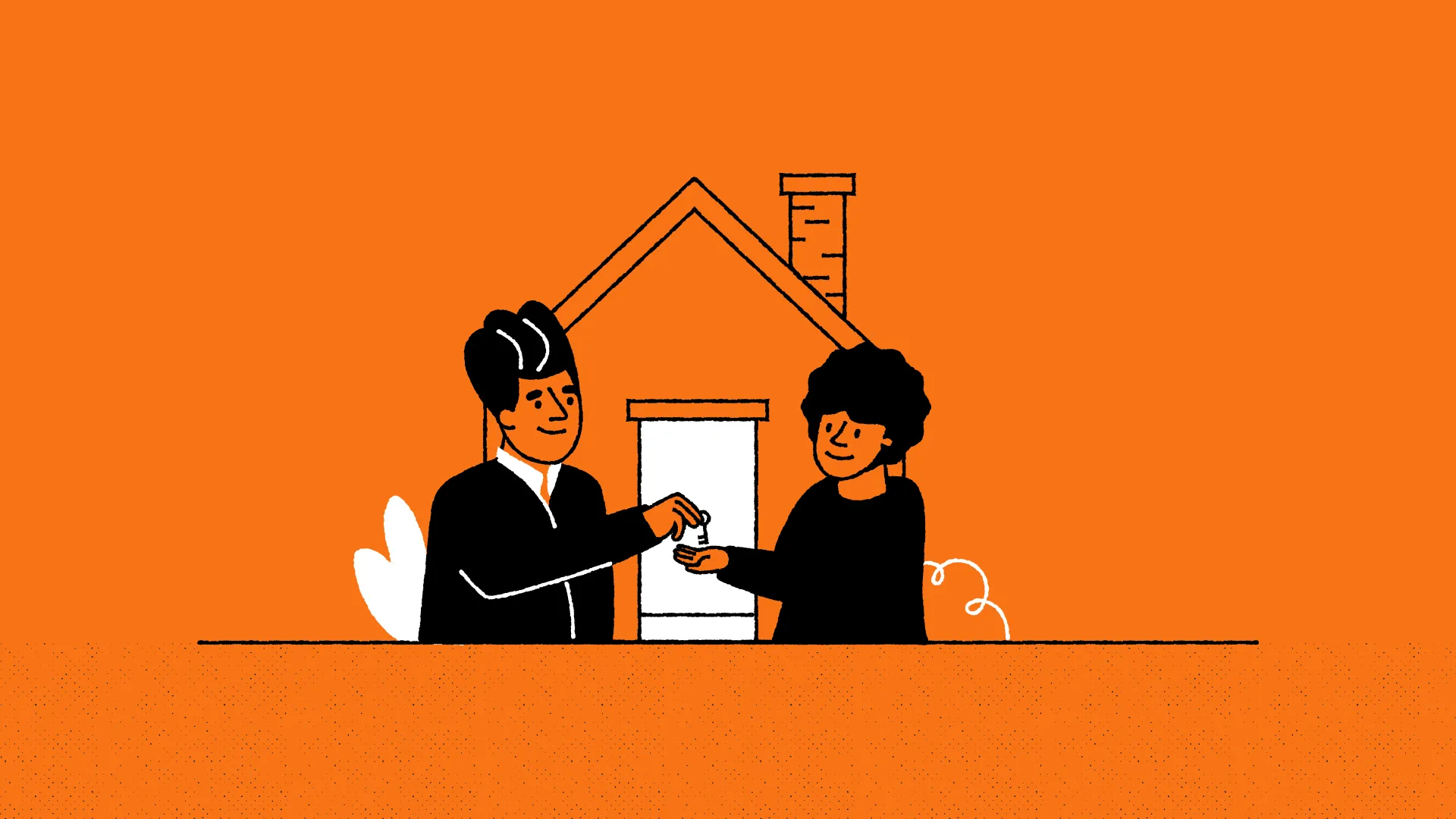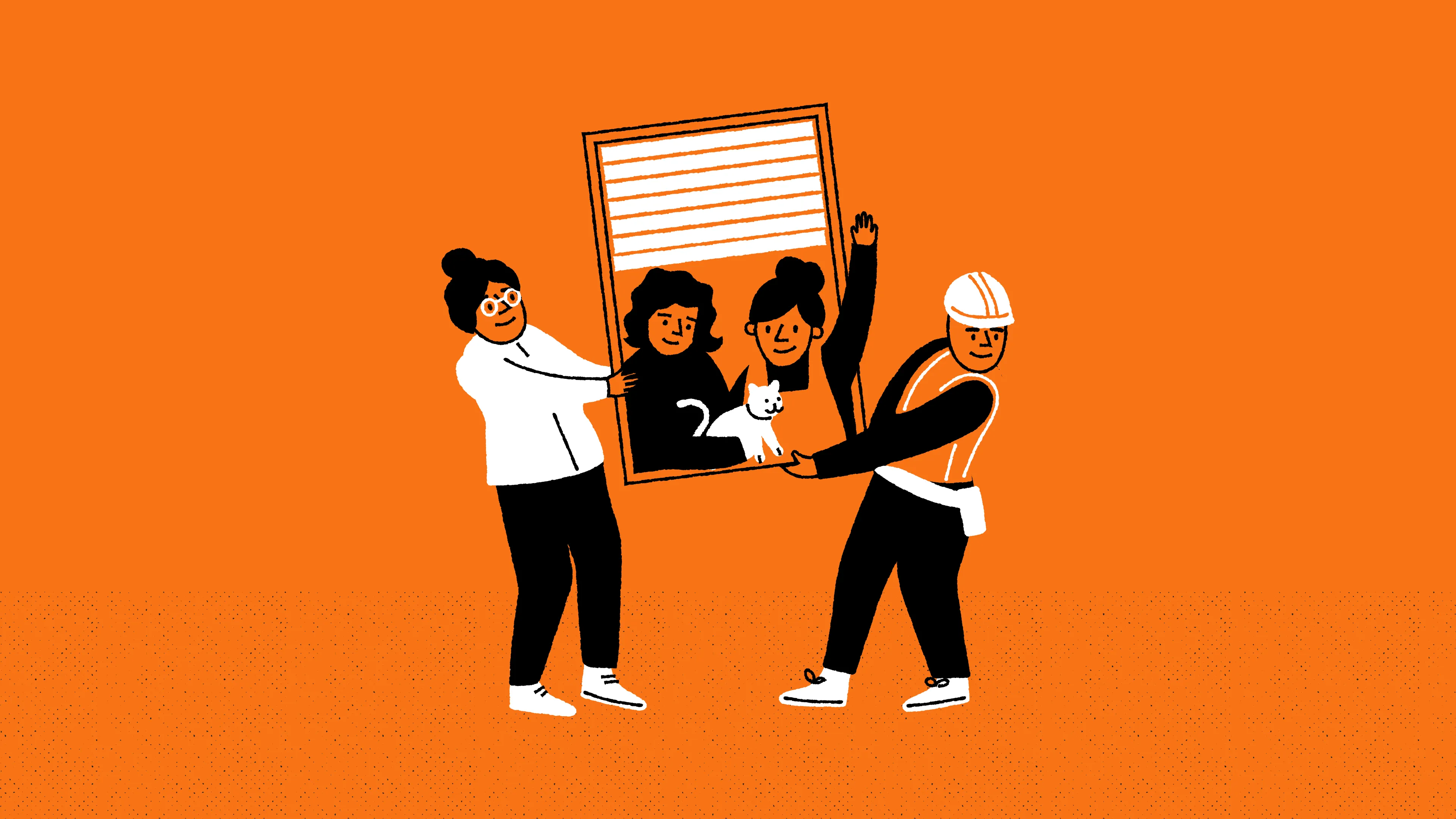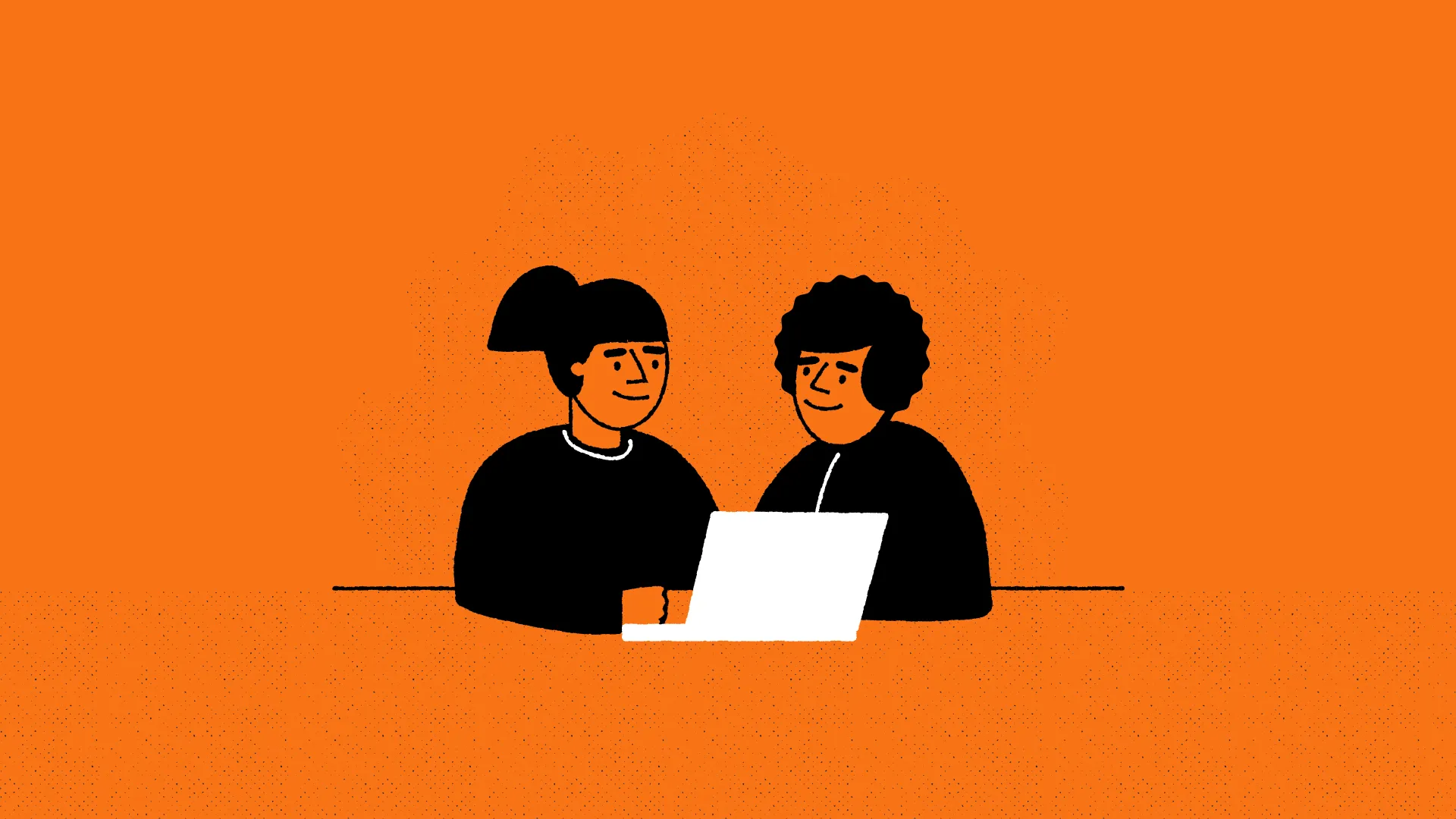Right to Buy Mortgages
Looking for a Right to Buy mortgage to buy your council home? Discover how Haysto can help you find an affordable mortgage solution to suit your needs.
Your home may be repossessed if you do not keep up repayments on your mortgage.
Exclusive broker partner to

Author: Michael Whitehead Head of Content
10 mins
Updated: Nov 16 2025
Author: Michael Whitehead Head of Content
10 mins
Updated: Nov 16 2025
On this page
Please be aware that by following any external links you are leaving the Haysto website. Please note Haysto nor HL Partnership Limited are responsible for the accuracy of the information contained within external websites accessible from this page.
On this page
What is Right to Buy?
Right to Buy was set up by the UK government in the 1980s. It gives you the opportunity to buy your council home at a big discount. Currently, it’s only available in England. It exists in Northern Ireland, but the maximum discount is a lot lower.
To qualify for the Right to Buy scheme, you need to meet the following criteria:
The property you want to buy is your only home
The property doesn't have any shared facilities with other households (like a flat with a communal bathroom or kitchen shared with others on your floor)
You've had a public sector landlord for three years (councils, armed forces, NHS trusts/NHS foundation trusts)
What discount do I get with Right to Buy?
Your Right to Buy discount depends on where you live and whether you’re in a house or flat.
If you live in a house, you get a 35% discount if you've been a tenant for between three and five years. After five years, the discount goes up by 1% for every extra year you've been a tenant.
If you live in a flat, you get a 50% discount if you’ve been a tenant for between three and five years. After five years, the discount goes up by 2% for every extra year you’ve been a tenant.
Following changes announced in the October 2024 Budget, and put into effect from the 21st November 2024, the maximum Right to Buy discount you can get will either be 70% of the value of the property or the maximum discount available for your region (whichever is lower). These new regional discounts will range from £16,000 to £38,000.
So, for example, if you live in the Yorkshire and Humber region, the maximum discount will be £24,000, for the South West the maximum discount available is £30,000 and for London the maximum discount is £16,000 (unless you live in the boroughs of Barking & Dagenham or Havering where the maximum discount will be £38,000).
Prior to the 21st November 2024, the maximum Right to Buy discount you could get was 70% or £102,400 across England and £136,400 if you lived in a London borough (whichever was lower).
What’s the difference between Right to Buy and Right to Acquire?
They’re similar, but there’s a few differences between Right to Buy and Right to Acquire.
Right to Acquire is meant for housing association tenants. Right to Buy is for council tenants. If you were a council tenant when your home moved to housing association ownership, then you'll need the Right to Buy scheme.
For Right to Acquire, the maximum discount available is £16,000. Again, this discount will vary depending on where you live. If you sell the property within five years of buying it, you'll need to pay back some or all of the discount you received. If you sell within 10 years, you'll need to offer it back to your previous landlord or another local social landlord.

Let's Get Started
We Make Mortgages Possible
Our Mortgage Experts are fully qualified with experience in bad credit, self-employed and complex mortgages. They have a proven track record of getting mortgages for people who’ve been rejected elsewhere.
Get Started Now Get Started NowHow are Right to Buy mortgages different?
Getting a Right to Buy mortgage is pretty similar to getting a regular mortgage. You can also apply with another person. Most lenders (but not all) will accept the discount you get on your property as a deposit.
There isn’t a specific ‘Right to Buy’ mortgage product, so you’ll need to pass the same affordability checks as other mortgage applicants. Your income and spending habits will be looked at closely to see if you can afford the mortgage repayments. You’ll also have to pass the lender’s credit check.
If you have an undischarged bankruptcy or IVA, you won’t be able to use the Right to Buy scheme. If you’re self-employed, you’ll be asked for copies of your certified accounts and SA302 tax calculations from the previous three years.
You can find out more about what to expect when you apply in our guide: What Mortgage Lenders Look For In Applicants.
Do I need a deposit for Right to Buy?
It depends on the lender, but most mortgage companies won’t need a deposit to give you a Right to Buy mortgage. They’ll usually be willing to use the discount you received on your home for this purpose. Because of this, the Right to Buy scheme is a good way to get on the property ladder if you have a low income or don’t have a big deposit.
However, some lenders might ask you to put down some cash up front (around 5-10% of the property value) regardless of the Right to Buy discount. That’s why finding the right lender is so important when applying for this type of mortgage, particularly if you want to use the discount as your deposit.
Can I get Right to Buy if I’m on benefits?
It’s possible! Some lenders will consider certain benefits as part of your income when looking at your affordability. However, you need to be aware that lenders will never consider housing benefits as part of your income. This is because you’ll stop getting housing benefits once you become a homeowner.
Can I get Right to Buy with bad credit?
Yes, it’s possible, but it will likely be more difficult than if you had an ‘Excellent’ or ‘Good’ credit score. If you’re currently the subject of an undischarged bankruptcy or possession order, you won’t be able to apply for the scheme.
Bad credit is a term used if you have a low credit score. It can be caused if you’ve had any issues in the past with repaying credit cards, utility bills, a mortgage or any missing payments on any of your bills.
Once your landlord has agreed to sell your council home to you, the Right to Buy mortgage application process is basically the same as it would be if you were buying a house on the open market.
Mortgage lenders will look at your credit history when you apply for a Right to Buy mortgage. Your chances of being accepted with a bad credit record will depend on the type of issue registered on your report, when it happened and how much it was for.
For example, issues like CCJs or defaults will be more concerning to a lender than missed or late payments.
Your choice of lender will be important too, which is why it’s wise to seek the help of a mortgage broker before you apply. They’ll be able to identify the right lenders who can help with your specific case.
Get in touch and a member of our mortgage team will contact you to discuss your situation and look at your options.
Are there any downsides to buying my council home?
Owning your own home is the ultimate goal for many people, but there’s a few things to think about, especially if you’re buying council housing through the Right to Buy scheme.
You should consider:
Mortgage repayments. Once you buy your home, you’ll no longer qualify for housing benefit. Consider whether you can comfortably afford your mortgage repayments without struggling.
Maintenance costs. If something goes wrong, it’s on you to fix it! The council isn’t responsible any more for any repairs your home needs. If your home shares any communal areas, you’ll have to contribute to the upkeep. If you’re in a flat, you’ll probably have to pay a monthly service charge.
Insurance. You’ll need to get buildings insurance to protect your home from damage, including things like floods or fires. This will usually be a condition of your mortgage.
Alongside the general costs of homeownership, there are a few risks which are specific to buying council homes:
Demolition. Council houses, especially those in desirable areas, can be at risk of demolition to make way for new developments. If the council wants to demolish your home after you've bought it, there won’t be a lot you can do about it. The council will buy your home from you with something called a compulsory purchase order (CPO) and force you to move out.
Selling up. Your home isn’t guaranteed to go up in value. If you’re planning to sell your home in the future, a decrease in value could leave you out of pocket. Also, if you sell within the first five years of buying your home, you'll have to pay back some or all of the discount.
Housing benefit. Any housing benefit payments you may currently receive will stop once you become a homeowner. You’ll need to be able to pay your mortgage through other forms of income.
Alternatives to Right to Buy
Although Right to Buy can be a great way to get on the property ladder, there are other options which you might want to consider.
Shared Ownership
Shared Ownership is where you buy part of a property and rent the rest. You take out a mortgage on the bit you're buying, then pay a reduced rent on the bit you don't own. You’re able to buy between 25-75%, and can buy some or all of the remaining share when you can afford to.
This means you only need to put a deposit down on the bit that you’re buying, rather than the cost of the whole home.
Read more about Shared Ownership.
Mortgage Guarantee Scheme
Announced by the UK government in 2021, the mortgage guarantee scheme allows you to get a mortgage with just 5% deposit. With the government providing a guarantee to mortgage lenders for part of the loan, it means you won’t have to save for a large deposit, or be restricted to new-build homes in order to get on the property ladder.
Read more about the Mortgage Guarantee Scheme.
Guarantor mortgage
If you don’t have a deposit and need a mortgage, you could consider a guarantor mortgage. Which means someone else agrees to legally pay your mortgage if you're no longer able.
Being a guarantor is a serious commitment, because their home will be secured against a part of your mortgage. This means they’ll have to pay any outstanding costs if your house is repossessed and sold by the bank. If you pass the affordability checks, you might not need to put down a deposit at all.
Read more about Guarantor mortgages.
Buy with friends or relatives
Buying a house with friends or a family member is becoming a popular way to get on the property ladder. Combining deposits and sharing all the monthly living expenses can be appealing.
It’s a big commitment though - you'll be jointly responsible for the mortgage payments. If one of you can't pay, you'll have to cover the cost. You also can't sell the property unless everyone on the mortgage agrees.
How Haysto could help make your Right to Buy mortgage possible
If you’re thinking of buying your council or housing association home, you should get advice from a specialist broker before starting a mortgage application. Especially if your situation isn’t straightforward. It’s best to work with someone who knows the market and has experience getting mortgages for people just like you. That's where we come in!
Our Mortgage Experts have a proven track record of helping people in a similar situation secure these types of mortgages. Make an enquiry to speak to someone and find out your options.
We Make Mortgages Possible
Our Mortgage Experts are fully qualified with experience in bad credit, self-employed and complex mortgages. They have a proven track record of getting mortgages for people who’ve been rejected elsewhere.
Get Started NowRelated Articles

First Homes Scheme
Find out everything you need to know about the First Homes Scheme and how Haysto could help make your mortgage possible.
Read guide

Mortgage Guarantee Scheme
Everything you need to know about the government-backed Mortgage Guarantee Scheme.
Read guide

Mortgages For First-Time Buyers
Discover everything you need to know about the home-buying process as a first-time buyer, and how Haysto can help you find an affordable mortgage solution.
Read guide
Information
Tools & Guides
Haysto, a trading style of Haysto Ltd, is an appointed representative of HL Partnership Limited, which is authorised and regulated by the Financial Conduct Authority.Registered Office: Haysto, Crystal House, 24 Cattle Market Street, Norwich, NR1 3DY. Registered in England and Wales No. 12527065
There may be a fee for mortgage advice. The exact amount depends upon your circumstances but will range from £599 to £1599 and this will be discussed and agreed with you at the earliest opportunity.
The guidance and/or information contained within this website is subject to the UK regulatory regime and is therefore targeted at consumers based in the UK.
Your home may be repossessed if you do not keep up repayments on your mortgage.








